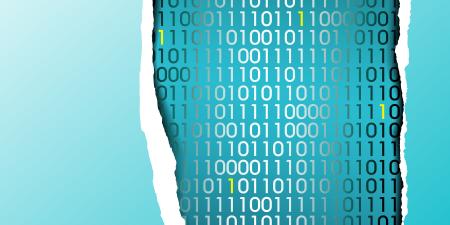I came to Africa believing that telemedicine technology was going to be a big part of the future of medicine. It seemed like the perfect way to link developing countries with modern medical centers around the world for consultation. I was optimistic that the technology would reduce the need for medical evacuations to countries like South Africa or the United States for sub-specialty consultations not available in country. The reality, however, is quite different. With the exception of the Internet, on which I will comment later, virtual medicine and telemedicine have had limited impact in Eastern Africa.
Hardware Alone Doesn't Do It
When I was asked to contribute to this month's theme topic, I tried to do my homework. I reviewed the two major referral hospitals in Nairobi, a regional medical hub, to find out what kinds of telemedicine technology were being used. The large private hospital is using essentially nothing. The administrator says he gets at least one salesman a week trying to sell him technology, but the unavailability of the bandwidths necessary for transmitting data makes it impractical. The other major hospital has developed more applications. It is part of the Aga Kahn Hospital System with support from the Aga Kahn Foundation and ties to the Aga Kahn Hospital in Saudi Arabia, a major teaching and research institution. The Nairobi affiliate has several direct communication linkages including an MRI scan machine in Nairobi that sends the images to Saudi Arabia for interpretation. The Chief of Radiology was very proud to show me the equipment. When I asked him how often he used the linkage, he chuckled and said he doesn't. The data from the MRI is so massive that it takes hours to transmit via telephone. We both knew how impractical this was as the ability to keep a good long-distance connection from Kenya for longer than ten to fifteen minutes is rare. Another great idea but impractical with the current communications infrastructure.
I then talked with the medical unit at the U.S. Embassy in Nairobi. The regional physician also chuckled and said they have a great set up with lots of "neat toys" like derm scopes and naso-pharyngeal scopes and a big two-way audio-visual broadcast unit. However, they cannot use them because the telephone system capability renders them useless. So, the reality is that the technology developed in modern countries is fascinating, but useless without a communications infrastructure to support it. I have time this morning to write this segment because the telephones in this section of Nairobi have been out for three days. "Sorry Daktari, the phones are not working today. Maybe tomorrow." This stops any email connection with the medical units of the other countries I support. We have no Internet access without telephones. I can try the cellular phone network but have no confidence it will work. In fairness to other countries in Africa, Kenya seems to have a particularly poor communications system. For instance, in South Africa, the telephone system as well as several cellular networks blanket the country and serve it well. However, South Africa is not an underdeveloped country. It is the classic problem of the haves and have-nots. The South African medical care system is excellent and really does not need telemedicine linkages for consultations but the country has the infrastructure to support it.
The Mixed Blessing of Internet Access
The Internet, however, has had a much more dynamic impact in Eastern Africa. At least when the phones work, I am able to access a tremendous date base of information. The need for reference textbooks is virtually no longer existent. I can get the information including patient information handouts faster from the Internet than paging through outdated reference books. This access is also available to the volunteers, which is a mixed blessing. They often use the information access to self-diagnose or at least gather a lot of information. A typical encounter with a volunteer might start with, "Hi Doc. I want to talk to you about X disease." I have learned to start with asking what they already know because often they have several printed information sheets from the Internet and are here to "check out" what I know. Usually this works well and the information is helpful to the volunteer. However, there are some hidden problems with this unlimited access to medical information. For example, medications are readily available from the local chemist without prescription. We have had problems with volunteers self-diagnosing, often incorrectly, and starting on an inappropriate or dangerous medication.
Another problem is inaccurate and biased information on the Internet. I recently had an excellent example of this. The Peace Corps follows the World Health Organization recommendations for malaria prophylaxis and uses mefloquine [Larium]. This is a somewhat controversial drug with side effects. I do not want to get into the debate on mefloquine in this article. Maybe we can do a future segment on controversies in medicine. However, recently a volunteer came in with information from the Internet to prove to me that mefloquine was dangerous and the Peace Corps should not use it. I read over his data and found it very different from the known published studies on the side effects of mefloquine. I challenged him on the source of his data and he supplied the Internet address. We logged on together and I was shocked. The Web site was a litigation law firm in the United States which was using the Internet to solicit sign-ups for a class action suit against the makers of Larium. It was a frightening Web site with inaccurate information and lists of anecdotal horror stories about mefloquine. I asked him if he trusted this information, and, after discussing it for awhile, he agreed that it was biased and unreliable. I gave him the data from the few good controlled studies on mefloquine and asked him to review them and then come back to talk with me. He has not returned. I just hope he trusts me enough to continue taking his prophylaxis, as I sure do not want to treat him for malaria.
Access to the Internet is expanding throughout Eastern Africa. Cyber cafes have become quite common and are coming down in price. In Nairobi, a typical charge would be 100 shillings or about $1.25 for the first five minutes and 20 shillings a minute thereafter. Even many rural villages are gaining access to the Internet. The United States and other countries are supporting Internet access in the schools. The Peace Corps volunteers have been in great demand to teach information technology and they report how great it is to see young students really turned on by what the Internet offers. My wife and I keep in touch with family and friends in the States almost entirely by email, and a colleague here at Peace Corps is using the Internet to work on a Masters in Nursing from an American nursing school and finds it excellent. The Internet certainly reduces the feeling of isolation so common in third world countries.
So, the Internet has and will continue to have a tremendous impact in Eastern Africa. Much of this is very positive for the country and its people. But not all. The use of telemedicine technology, however, is more of a dream than a reality until the communication infrastructure catches up. Hopefully, the telephones here start working again in time for me to submit this segment of my journal of experiences in Eastern Africa. Happy surfing.



